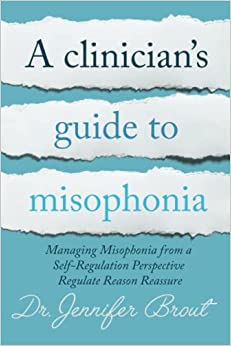Our BASIC Patterns Grid Worksheet is a tool used in Process-Based Therapy (PBT) to identify a patient's patterns in the following skill areas: Behavioral, Attentional, Somatic, Interpersonal, and Cognitive.
PBT is a way of transdiagnostically helping people in a principle-based way that is tailored, collaborative, structured but has flexibility to each individual person, and fundamentally driven by the core tenant of using evidence-based approaches to help people.
Please email Dr. Zach Rosenthal at mark.rosenthal@duke.edu for any questions about how to use this worksheet.
Download the worksheet below.
The consensus definition project was commissioned by The REAM Foundation through their partnership with the Milken Institute Center for Strategic Philanthropy.
CMER Director, Dr. Zach Rosenthal along with many leading Misophonia researchers came together as part of this project to prepare this manuscript and report the group findings.
Authors: Susan Swedo, David M. Baguley, Damiaan Denys, Laura J Dixon, Merced Erfanian Alessandra Fioretti, Pawel J. Jastreboff, Sukhbinder Kumar, M. Zachary Rosenthal, Romke Rouw, Daniela Schiller, Julia Simner, Eric A. Storch, Steven Taylor, Kathy R. Vander Werff, Sylvina M. Raver
Read the Consensus Definition of Misophonia
Dr. Jennifer Jo Brout is the Founder of the Misophonia Research Network (MRN). She is a New York State Certified School Psychologist, a Connecticut Professional Licensed Counselor, and holds a Doctorate in School/Clinical-Child Psychology.

Dr. Brout's book, A Clinician’s Guide to Understanding and Managing Misophonia from a Self-Regulation Perspective: Regulate, Reason, Reassure gives clinicians the tools to help mediate misophonia and provides easy to follow guidelines and work sheets to ensure their clients have the skills to continue practicing RRR.

To learn more about classes and clinician trainings, please contact Dr. Jennifer Jo Brout via her website.
The DMI is a 22-item semi-structured clinical interview used to assess an individual’s experience of Misophonia within the past month, as well as over their life more broadly. The DMI was developed to be administered in both research and clinical settings. For most people, the interview takes less than one hour to complete. The structure of the DMI was primarily informed by several widely used and psychometrically validated clinical interviews, including the Clinician-Administered PTSD Scale for DSM-5 and the Anxiety Disorders Interview Schedule for DSM-5.
DMI Instructions:
The latest version of the DMI is available here to download for use clinically and/or for research:
The Duke Misophonia Questionnaire (DMQ) is the first psychometrically validated self-report measure of Misophonia using factor analytic procedures combined with IRT in an English-speaking sample. The DMQ can be used in its totality, as individual subscales or with composite scores of symptom severity or difficulties coping.
DMQ Instructions:
The final DMQ has 86 items and includes subscales:
- Trigger Frequency (16 items)
- Affective Responses (8 items)
- Physiological Responses (5 items)
- Cognitive Responses (10 items)
- Coping Before (triggered) (6 items)
- Coping During (triggered) (10 items)
- Coping After (triggered) (5 items)
- Impairment (12 items)
- Beliefs (14 items)
Trigger Frequency
The trigger frequency subscale includes a trigger checklist that can be used to quickly identify an individual’s triggers. The rest of the measure uses the most bothersome trigger, rather than all potential triggers. This subscale can be used by clinicians to identify patterns and opportunities for change.
Symptom Severity
- Affective Responses Score
- Sum of Affect #1-8
- Physiological Responses Score
- Sum of Physical #1-5
- Cognitive Responses Score
- Sum of Cognitive #1-10
The sum of the Affective, Physiological, and Cognitive Responses subscales (23 items total) equals the overall Symptom Severity Composite Score. Scores greater than 41 are indicative of higher misophonia symptoms. This can be interpreted quantitatively.
Coping
Can be scored using the following subscales individually:
- Coping Before (triggered) Score
- Sum of Coping Before #1-6
- Coping During (triggered) Score
- Sum of Coping During #1-10
- Coping After (triggered) Score
- Sum of Coping After #1-5
Individual subscale scores can be interpreted quantitatively. Coping Before, Coping During, and Coping After (triggered) subscales can be used collectively to identify common coping strategies that that may be helpful or unhelpful. We recommend using these at the item level qualitatively.
Beliefs
Beliefs can be scored using the Beliefs Score (sum of Beliefs #1-14). This can be used to identify problematic ways of thinking that can be changed. We recommend using these at the item level qualitatively.
Impairment
Impairment can be scored using the Impairment Score (sum of Impairment #1-12). This can be interpreted quantitatively.
Clinical Impairment Ranges
0-13: "minimal-mild impairment"
14-38: "moderate impairment"
39-48: "severe to very severe impairment"
_____________________________________________________________________
The latest fillable PDF version of the DMQ is available here to download for use clinically and/or for research:
CMER director, Dr. Zach Rosenthal, MRN Founder, Dr. Jennifer Brout, and other known misophonia researchers published this review article in Frontiers in Neuroscience.

The Misophonia Research Fund (MRF) is focused on advancing scientific breakthroughs and ending suffering from Misophonia through a competitive grants program.
For funding opportunities and more resources for researchers, visit For Researchers | MRF.
The Misophonia Research Network (MRN) consists of sufferers and doctors working together to support science that leads to treatment and better practice standards for Misophonia. Dr. Heather Hansen is the Director of MRN, and Dr. Jennifer Jo Brout is the Founder of MRN. Our Director, Dr. Zach Rosenthal, serves on the MRN Advisory Board.

soQuiet is a 501(c)3 nonprofit built by people with Misophonia for people with Misophonia. They offer advocacy, support, and resources for people who suffer from Misophonia and for researchers and clinicians helping people with Misophonia.
If you would like to be listed on soQuiet's Misophonia Providers Directory, visit Join Misophonia Providers - Today!
soQuiet Misophonia Courses is home to soQuiet's courses for clinicians.
soQuiet offers student research grants to graduate students worldwide. To apply and/or learn more, visit Student Research Grants.
If you are a researcher looking to recruit participants for your Misophonia related study, visit soQuiet's Misophonia Research Participant Pool.
Our director, Dr. Zach Rosenthal, along with CMER's 5th year Duke PhD student, Jacqueline Trumbull, and 1st year Duke PhD student, Yanyan Shan published "Treatment of Misophonia."
If you would like your clinical practice or setting to receive a training related to Misophonia, please contact Dr. Rosenthal directly at mark.rosenthal@duke.edu